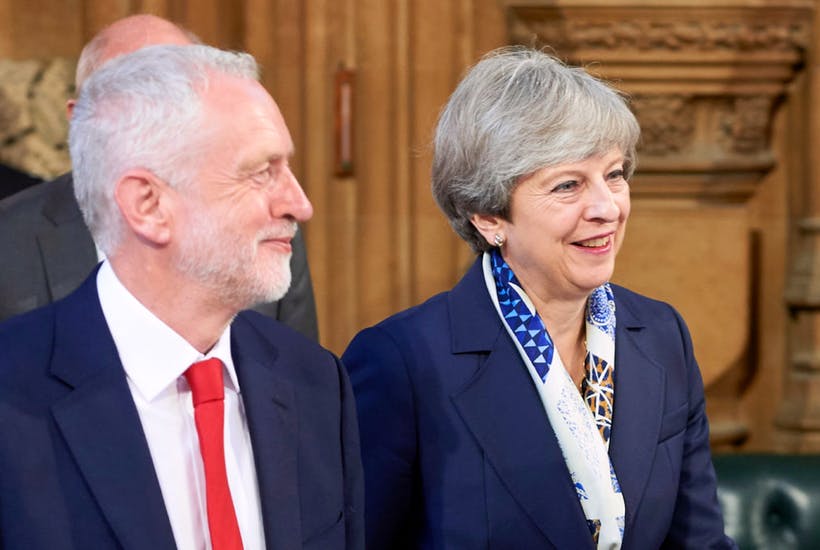The irony of the stalemate in the cross-party Brexit talks is that Theresa May and Jeremy Corbyn are not that far apart on the issue, as I say in The Sun this morning. They might use different language, but what they want is really quite similar.
But while they may not be that far apart, their parties are. A deal would require not one of them, but both of them to be prepared to split their parties.
If Theresa May was to soften her deal to try and get Labour support, she would exacerbate the divide within her own party. I am told that in the talks, the government has tried to point out to Labour that the deal does, in the backstop, effectively include a customs union. But Labour has been insistent that the phrase ‘permanent customs union’ must be in any deal. Why, because they know that by removing any ambiguity on this point they divide the Tories.
One figure close to the talks tells me that Labour has two objectives in these discussions, to maximise Tory divisions and minimise Labour ones.
When political opponents negotiate, such suspicions are inevitable. But there is a huge risk for Corbyn in agreeing any deal with the government.
If Corbyn helps usher in Brexit, even a soft one, the pro 2nd referendum forces in the Labour party will never forgive him. In these circumstances, he would almost certainly lose more MPs.
The simplest way for Corbyn to justifying ushering a Brexit deal through would be if the alternative to it was no deal. He could argue that he had to act to prevent the UK leaving without a deal. He could say that no deal would cost manufacturing jobs and lead to the Tories cutting regulation and corporate taxes.
But with the EU likely to offer the UK an extension of up to a year, this argument doesn’t work: a year is enough time to hold either a general election or a second referendum.
One other option being discussed is the idea that there might be a separate Commons vote on a second referendum. Labour would whip in favour of it, but because of Tory opposition and Labour rebels it wouldn’t pass. Corbyn could say he had tried, but the numbers just weren’t there.
But that approach is unlikely to wash with the more fanatical Labour second referendum types. They know that there aren’t the votes in parliament for a second referendum on its own, and so want it to be part of any overall agreement.
Got something to add? Join the discussion and comment below.
Get 10 issues for just $10
Subscribe to The Spectator Australia today for the next 10 magazine issues, plus full online access, for just $10.





















Comments
Don't miss out
Join the conversation with other Spectator Australia readers. Subscribe to leave a comment.
SUBSCRIBEAlready a subscriber? Log in